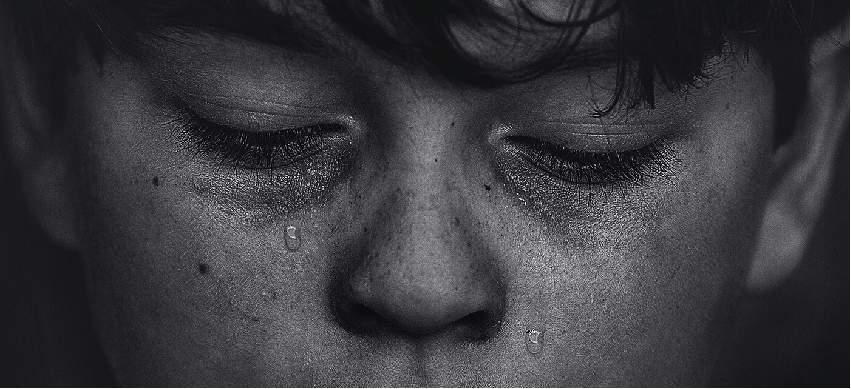
28 Oct How to prevent child sexual abuse
One in FIVE women and one in TEN men were victims of child sexual abuse. What signs should we attend to and how to act?
What Is Child Sexual Abuse?
Sexual abuse occurs when an adult or older minor forces a child to have sexual contact.
To achieve his goal, the abuser may use physical force, a bribe, threats, or take advantage of the child’s naivety.
The following acts are considered child sexual abuse by an adult or another minor:
- Touching the genitals of a child
- Making a minor caress the genitals
- Contact with the genitals of a child through the mouth
- Caressing the child with the genitals
- Vaginal or anally penetrating a minor
- Showing the penis or vagina to a child
- Bringing the child into contact with pornography
- Involving a minor in pornographic productions
Are Cases Of Minors Victims Of Sexual Abuse Common?

Unfortunately yes. It happens more often than people think. According to statistics, one in five women and one in ten men claim to have been victims of sexual abuse during childhood.
Who Are The People Who Can Potentially Abuse Children?
Typically, the perpetrators are adults or older children who are part of the social environment of the abused.
In eight out of ten reported cases, children claim to know the abuser who, in general, is a person they trusted.
How Do I Find Out If My Child Is A Victim Of Sexual Abuse?
Most parents believe that their children will tell them or someone older if someone sexually assaults them.
Unfortunately, this is not always the case and it is because abusers often threaten or convince children not to tell what happened.
For his part, the minor may feel responsible for having been abused, even believing that he will be punished if the truth is discovered.
However, if the child decides to tell it, he will do so in a very confusing way. He will probably choose to tell a friend, who will in turn tell his parents.
Only those children who have previously been told about the subject, either at home or at school, are able to talk about what happened.
Due to the above, parents should be attentive to changes in their children’s behavior.
What Are The Psychological Symptoms Of Sexual Abuse?
- I express fear on the part of the child of a person (including the father or mother) or of staying in certain places
- Abnormal reactions when asked if he was touched by someone
- Behavioral changes (such as wetting the bed)
- Avoiding doing his stools
- Frequent nightmares
- The sudden prominence of his genitality
The Physical Symptoms Of Sexual Abuse
- Unusual secretions in the anus or vagina
- Manifestations of pain in the anus or genitals
- Redness or bleeding in the vagina or penis
- The emergence of sexually transmitted diseases (chlamydia, gonorrhea, etc…)
- Frequent urinary tract infections (in girls)
- Pregnancy
What Should I Do If My Child Tells Me That He Or She Has Been Sexually Abused?
First of all, you must listen to the child with all the seriousness that the case deserves, especially considering that children tend to ignore those issues that make them feel uncomfortable.
When a minor who reports being abused is ignored by his parents or they do not believe him, not considering the request for help, it is common for the child not to risk mentioning the problem again.
This situation puts the child at risk of repeated abuse over months or years.
Therefore, it is crucial that they explain the importance of talking about those uncomfortable feelings.
Listen very carefully to the reasons why he did not tell the situation before and make it absolutely clear that, in no way, what happened was his fault.
Show him all your love, give him reassurance and make sure it is clear that you are going to help him.
If the situation makes you angry, make an effort to let your child know that this feeling is not directed at him in any way.
Appreciate his courage in telling you and show him that you understand his fear, especially if he was abused by a family member or someone close to the family.
An aspect of vital importance, once you find out about the matter, is that you take the child to the pediatrician.
This must review and rule out that there are injuries of any kind or that has contracted any disease.
We also recommend that you take the minor for a consultation with a psychologist.
If My Child Was Sexually Abused, Should I File A Police Report?
Yes. Reporting the abuse to the proper authorities will help the child feel protected.
In addition, the act of making the formal complaint before the law will make it clear to the minor that he was a victim and that he should tell the truth about him without being ashamed of it.
How To Talk To Children About Sexual Abuse?
According to Jill Starishevsky, a New York prosecutor specializing in child abuse and sexual crimes cases and author of the book “My Body Belongs to Me,” the first step in safeguarding a child’s sexual health is for parents to break their own taboos around the sexuality of their children and can gradually talk about sexual abuse as an extension of the topic.
In that book, one of the few that deals with the subject of sexual abuse in a language adapted for children between 3 and 8 years of age, Jill assures that the first tool to prevent sexual abuse is to teach children from an early age that your body is yours.
And that no one can touch him, make him uncomfortable or talk about his private parts.
How Can I Prevent Child Sexual Abuse?
In accordance with the advice of the American Academy of Pediatrics, it is advisable to consider the following aspects:
Dialogue: Explain to your little one what sexual abuse is. If the school he attends gives him information about this, talk to him about what he learns there.
Private parts: Teach him the private parts of the body and the respective names of those parts. Tell him that his body belongs to him and teach him to ask for help in a situation in which he feels violated.
Pay attention: Pay close attention if your child wants to tell you something and, even more so, if it is difficult for him to do so.
Environment: Take time to get to know the adults and children who spend a lot of time with your child. Make unannounced visits to places where you leave your child for care.
Through these tips and through closeness, attention, and observation of your child. You may avoid a problem that can mark the child for life.
You may like to read What Is The Importance Of Sports In Children?

Sorry, the comment form is closed at this time.